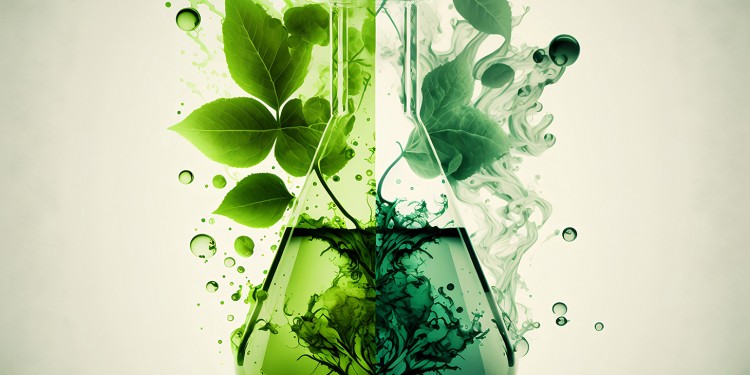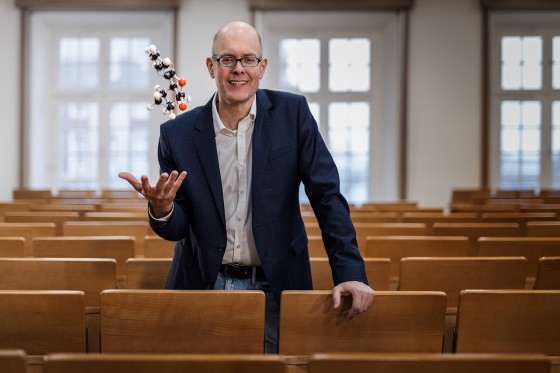
"Chemistry is essential for our society"
Sustainable development is a challenge that scientists at the University of Münster are also taking up. Together with his research group, chemist Prof. Frank Glorius is organizing a symposium on issues of sustainability in chemistry, which will be held for the first time on August 24th in Münster University's castle. The main topic is Hydrogen. Anyone can participate. However, online registration is required by August 23rd. More than 200 participants have already registered for the symposium. In an interview with Christina Hoppenbrock, Frank Glorius provides insights into the transformation of chemistry and introduces the new conference format.
Hydrogen is seen as a possible energy carrier of the future. Is that also what the conference is about?
Yes! The use of hydrogen as an energy carrier and hydrogen storage can also be topics of the symposium. But there are many other uses of hydrogen in important chemical reactions. One example is the hydrogenation of aromatics or other unsaturated substrates. Hydrogen is also used in food production, for example in the production of margarine from liquid vegetable oils.

Hydrogen is the main topic, but we welcome everyone who is interested in sustainable chemistry, and we also want to learn from them. Therefore, many other areas of sustainable chemistry will also be presented. In addition to the plenary talks, there will be 45 poster presentations.
Many people see the chemical industry as partly responsible for environmental pollution. The term 'chemical' is sometimes even used synonymously with 'hazardous to health'. How can chemistry ensure greater sustainability?
Chemistry is the natural science that deals with the structure, properties and transformation of substances. It is essential for our society. Without chemists, there would be no medicines, no objects made of metal or plastic, and thus no screens, microprocessors, cars, bicycles, watches, or food for eight billion people. For centuries, this natural science has fascinated people: it is fascinating to understand what is around us and within us, to be able to influence these processes, and to improve the quality of life of people and animals. Many of my colleagues at the University of Münster are working on sustainability issues, for example, the use of algae to produce hydrogen, more efficient synthesis processes, more powerful batteries or the study of impurities in food.
But where does the bad image of chemistry come from?
Today, people are also rightly aware of the dangers and costs of chemical processes and chemical products. The 'take - make - waste' approach is no longer appropriate and more sustainable processes need to be developed. The chemistry must be right! The keys to success are good, modern training for the next generation of chemists and the innovative collaboration between all chemists.
Which speakers do you expect at the symposium?
I am delighted to have a very diverse team of speakers - all leading international researchers. They come from Israel, the USA, Sweden, Denmark and Germany and will cover a very broad range of topics: from hydrogen storage to the degradation of plastics to highly selective conversions, the use of readily available raw materials and also catalysis entirely without metals.
Will there be more "Dream Reactions" meetings?
The next "Dream Reactions" symposium is already planned. It will take place on August 29th, 2024, again in parallel with the "Turnier der Sieger" horse riding tournament and focusing on light(energy).
